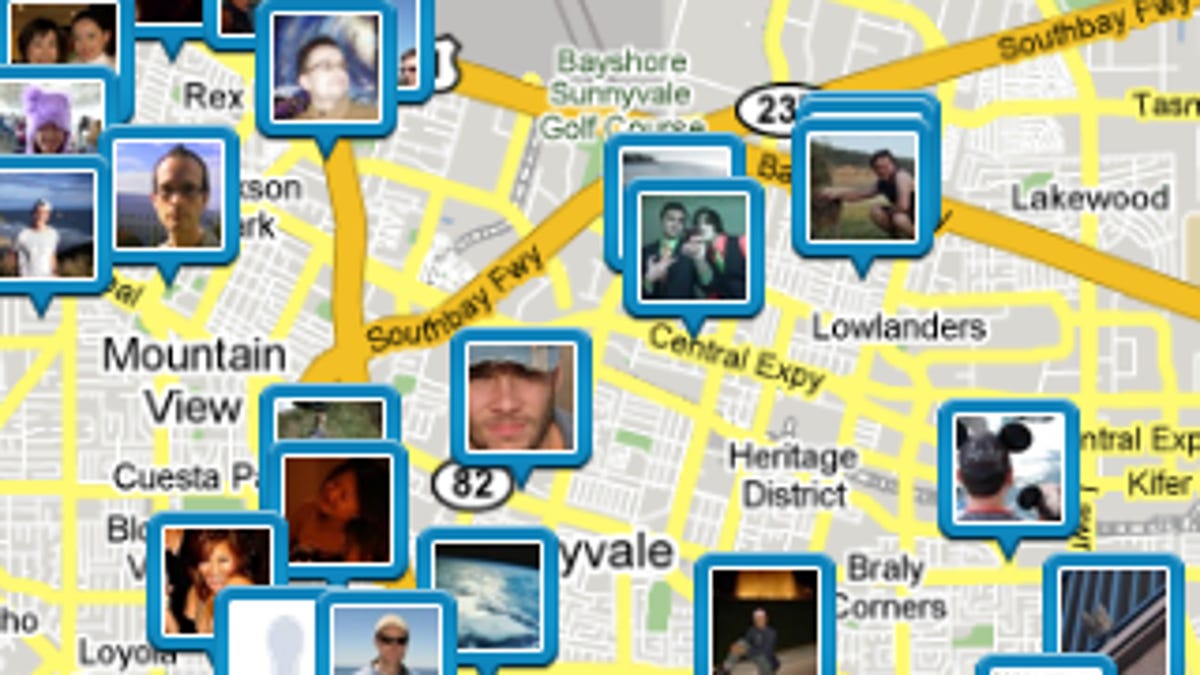Stalqer mobile social app finds friends in new ways
Mobile friend-finding service has clever ways to solve two vexing issues for this category.

The developers of the iPhone app GasBag, which helps iPhone users find the cheapest gas for their cars, are working on a new mobile friend locator service, Stalqer. This clever and aptly named service has two technologies that are unique, as far as I know, to help it get around two of the big problems found in other friend locators like Foursquare, Loopt, and Google's Latitude.
Problem 1: On the mobile platform that matters, the iPhone, there's no way to do real-time location reporting without running an app all the time, and the iPhone doesn't allow background processes. And even if it did, it would draw down the battery. The Stalqer solution is to create a dummy e-mail account that pings the Stalqer servers whenever the phone polls for mail, which is, by default, every 15 minutes.
When the phone hits the Stalqer e-mail servers, it sends along Internet gateway data, which can be used to locate the phone. It only works when the phone is connected via Wi-Fi, not GSM. It also doesn't get data from the phone's GPS sensor, but it's a clever hack on the way to the creation of more robust location reporting features.
Competing mobile social apps require the app (Foursquare, Loopt) or site (Latitude) to be open for the user's location to be reported. Or they require a phone that supports background processing, like an Android device.
CEO Mick Johnson told me there is another company that has this idea, but nobody has yet released a product based on it.
Problem 2: Your friends aren't on your friend-location service. The existing friend-finder apps are lonely places. So you can go to a big event, look your buddies in the eye, look down at your phone, and not see them. Stalqer takes data from your friends' Facebook locations in combination with the live data from other Stalqer subscribers to give you a pretty comprehensive map of everyone you know.
Unfortunately, Facebook data is often wrong, and Stalqer doesn't yet divine location data from content posted in wall messages or on Twitter. Johnson says it will do that eventually. He says that the data is about 70 percent accurate at the moment but that "I think it will be enough. As long as it's interesting it's all that matters." Accuracy will go up as people join the service.
But the point is to have the app report on locations of people who aren't using it. Creepy, yes, but as Johnson described it, Stalqer doesn't actually break privacy settings or report data that isn't otherwise available to its users.
Stalqer mashes up what you can see with your Facebook login with your phone's contact list to see if you have permission to contact someone. It assumes that if you have the person's e-mail address on your phone they're a bonafide contact of yours and it lets you track and contact them from within Stalqer. This is how this app creates a "good viral chain," as Johnson puts it, and how it could spread.
Stalqer won't work if it freaks users out, so managing privacy well is clearly a big part of the app. Johnson said clarity and transparency are critical for the app, which is why it's called Stalqer. "We want people to know what it is," he said. "The key to privacy is telling people what you're doing and letting them control it."
Users running the reporting app can turn it on or off, control the granularity of its reports, and report different levels of data to different groups. Close friends might be able to see what street address you're at, for example, but family members only which city. (Johnson said he studied FireEagle). Staqler admits that there will be problems--as I told him, while people will do doubt appreciate the capability to turn off location reporting before they walk into the strip club, chances are they'll already be drunk and will forget. Domestic hilarity will ensue.
Johnson said all social networks will become mobile social networks and that location reporting must be a big part of their feature sets. He said Facebook is perhaps too big to innovate in this area--not too big to be creative, but too big to handle the user firestorm that would erupt if it started to experiment with location reporting. Thus, he thinks, the company is leaving clever location-based mobile apps to small start-ups like his.
Taking a page from Twitter and perhaps Tim Berners-Lee, Johnson dismisses talk of monetizing the service at this early stage. "We want to build an Internet treasure," he says. He has ideas for revenues but wants to focus on growth. He says he's built a successful business based on free apps before, and he can do it again.
When it's available, I'll try this app but mostly only to see where my friends and contacts are and to report where I am when I'm on business trips or at conferences. I think I'm too old to be comfortable having my iPhone tell everyone I know where I am all the time. Johnson, at 29, doesn't feel the way I do. We'll see what real consumers feel. Certainly Stalqer solves some of the most interesting problems in mobile social networking, and I'm eager to see it released.

